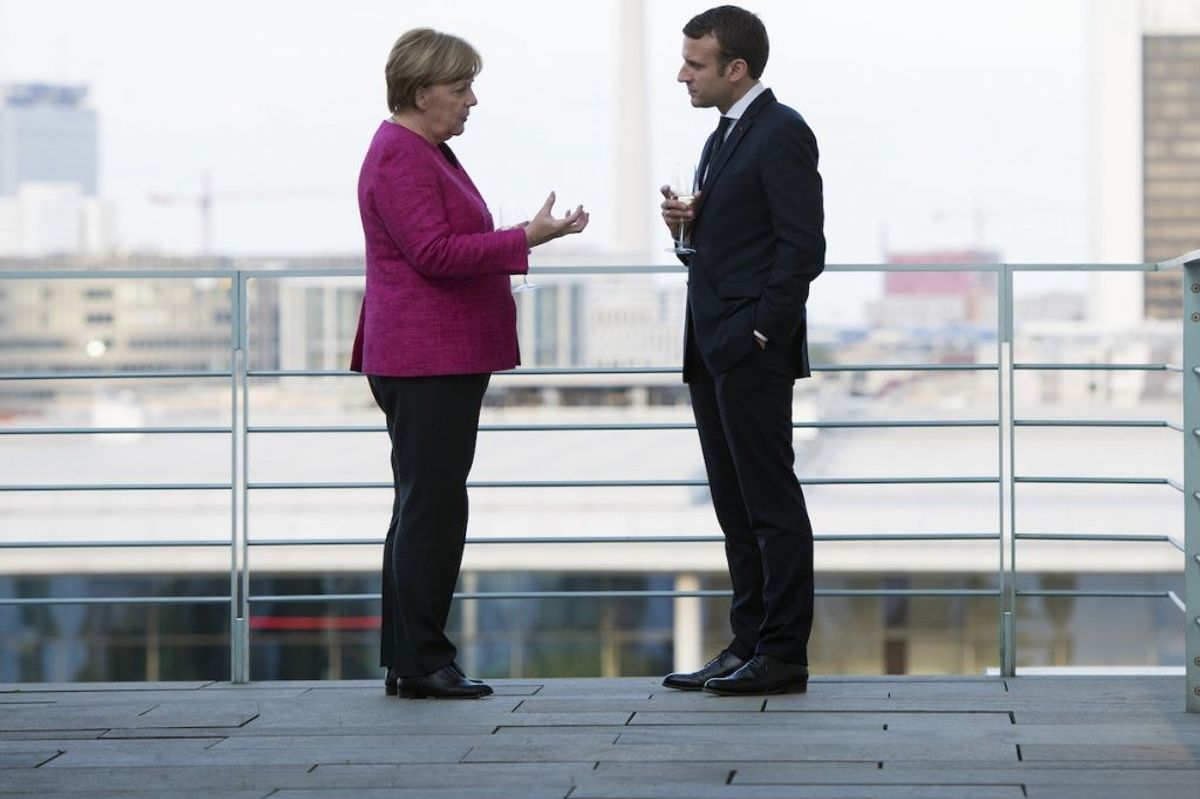On December 4, Italians will vote on a far-ranging constitutional referendum, which promises to completely change the way that Italy's political institutions operate. Proponents of the referendum, led by Prime Minister Matteo Renzi, claim that a “Yes” vote is necessary to streamline Italy’s creaking parliamentary system and allow vital reforms to pass. However, the vote’s critics claim that the referendum threatens to dangerously undermine constitutional checks and balances. Meanwhile, after PM Renzi’s pledge to resign if the vote fails, Italy’s faltering banks and European markets will be watching with bated breath. The Cipher Brief asks Michael Leigh, Senior Fellow at the German Marshall Fund and a former European Commission Director-General, what the referendum’s outcome could mean for Italy’s future.
The Cipher Brief: Why does this referendum matter to the United States?
Michael Leigh: Italy is a member of the North Atlantic Treaty Organization, the European Union (EU) and a key partner for the United States in the fight against terrorism, organized crime, and the drug trade, as the incoming administration in Washington will soon realize. If Italy were destabilized politically and economically by this referendum, the U.S. would soon feel the that crisis’ effects.
TCB: What is at stake for the voters?
ML: The referendum question itself asks whether the voter approves the text of a constitutional reform bill, which was approved by Parliament earlier this year but with an insufficient majority to be enacted into law. Its main effect would be to change the method of selection for members of the Senate, which would become an appointive body with reduced powers.
This would eliminate the existing equality between the two houses of parliament that the prime minister claims is an obstacle to adopting necessary reforms. The bill would also change the balance of power between national and regional authorities, tilting the balance toward Rome. The bill contains other relatively minor changes, including one that would reduce the threshold needed for questions to be approved by referendum.
TCB: Why are such apparently dry issues exciting so much contention in Italy?
ML: The prime minister, Matteo Renzi, has said that he would resign if the “No” campaign wins and the constitutional reform bill is rejected by voters. This statement, which many consider intemperate and unnecessary, has turned the referendum into a plebiscite on Mr. Renzi and his government. Mr. Renzi says that he will not be able to implement any of his promised structural changes, which Italy so badly needs, without the constitutional reform bill.
Some admire Mr. Renzi because of his reformist zeal while others are put off by his overbearing manner. The reforms themselves threaten a number of vested interests. This includes the left wing of his own Democratic Party (PD) who are afraid that the reforms will affect their followers’ entitlements. The leaders of all political parties, other than the PD, have urged their followers to vote “No” in the hope of ousting Mr. Renzi from office.
The basic problem with the reform is its relationship to the new electoral law (known as “Italicum”), which guarantees a majority in the lower house for the party that tops the poll in national elections by awarding bonus seats. The constitutional reform would weaken the system’s checks and balances by removing the countervailing power of the Senate, leaving the victorious party in almost total control.
Taken together, the constitutional reform and Italicum mean that the insurgent Five Star Movement (5SM) of comedian Beppe Grillo, could rule for five years without any significant counterweights if it came out top in the next national election. The 5SM has already taken over control of Rome and Turin following municipal elections.
Certain political figures, like former prime minister Mario Monti, call for rejection of the constitutional reform bill on the grounds that it will concentrate too much power in the hands of the government and the prime minister of the moment. With Italy’s history, this is a worrying prospect.
On this reasoning, “Yes” is in fact the populist option, and “No” is the way to conserve the system’s existing checks and balances.
TCB: Will Mr. Renzi resign if the “No” wins?
ML: If “No” wins by a large margin, as opinion polls – for what they are worth – suggest, he will have little choice but to resign. If there is a narrow margin, he may try to hang on, or at least, remain as Democratic Party leader. Some believe that if the defeat is not too calamitous, the President, Sergio Mattarella, might actually ask Mr. Renzi to form a new government himself; Mr. Renzi might then open it to include figures from the center right to give it a broader base.
Speculation is rife, adding to the uncertainty that is already affecting the financial markets.
TCB: If there’s a “No” victory, will Italy face a general election in which the insurgent Five Star Movement of comedian Beppe Grillo could come to power?
ML: President Mattarella will probably avoid dissolving parliament and precipitating new elections for now. Instead, as I mentioned, he might ask Renzi or a less controversial figure to lead the government until regularly scheduled elections are held in May 2018. So, unless Renzi loses the referendum by a very wide margin, it is unlikely that Bepe Grillo’s 5SM will come to power in the short term, but all bets are off beyond that. If “Yes” gains a majority, and this is not followed by a change in the electoral law, the winner of the 2018 election will be able to dominate the Italian political scene largely unimpeded for the next five years.
TCB: How would a “No” vote affect Italy’s participation in the EU?
ML: A shaky new government with a limited mandate would struggle to adopt a budget in line with the EU’s tough fiscal rules and would face criticism from Brussels and Frankfurt. This would make it even harder to find an acceptable formula for bailing out Italy’s over-stretched banks and would upset the markets.
A banking crisis in Italy would raise new questions about the sustainability of the euro, in the absence of measures to shore up the single currency’s creaking governance structures. No such measures will be adopted at least until after the German elections next September.
The single currency would come under further pressure if the 5SM, which has promised a referendum on leaving the euro, wins the next election in 2018.
TCB: So are Italians likely to follow the British along the path to eventual exit from the EU?
ML: Overall, Italians remain more attached to the idea of Europe than the British, who voted last June to leave the EU. For the moment, the misfortunes of the British have tended to strengthen support for the EU in Italy and other member states.
Still, Italians are angry at the EU’s insistence on economic austerity and its lack of solidarity in dealing with the many refugees and migrants who sail for Italy from North Africa. The Italian economy has stagnated for much of the past two decades and many blame EU austerity for this. In the year ahead, Italians will be influenced by developments in Austria, the Netherlands, France, and Germany where elections will be held during the coming months. If radical nationalists come to power or closer to power in any of these countries, there could be a contagious effect in Italy favoring the 5SM.













